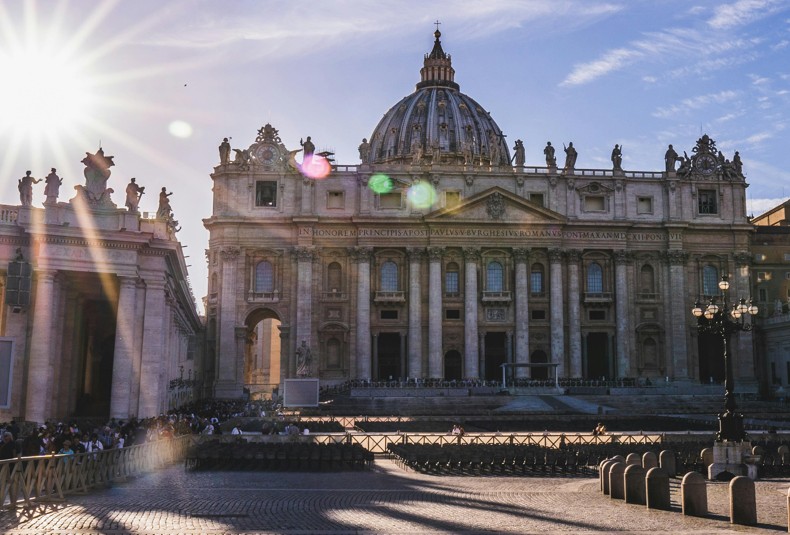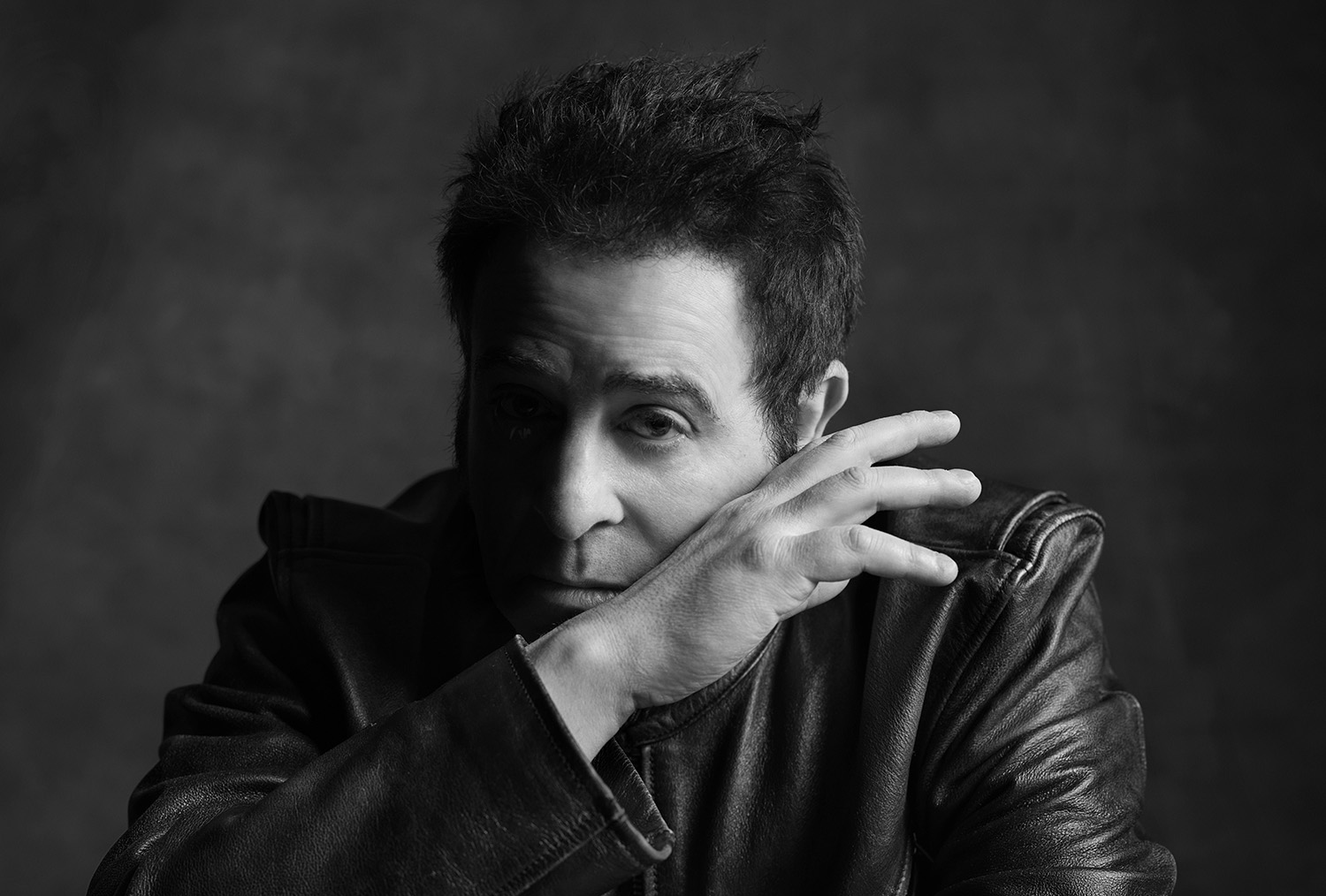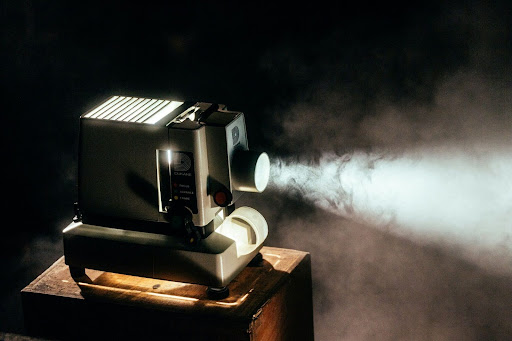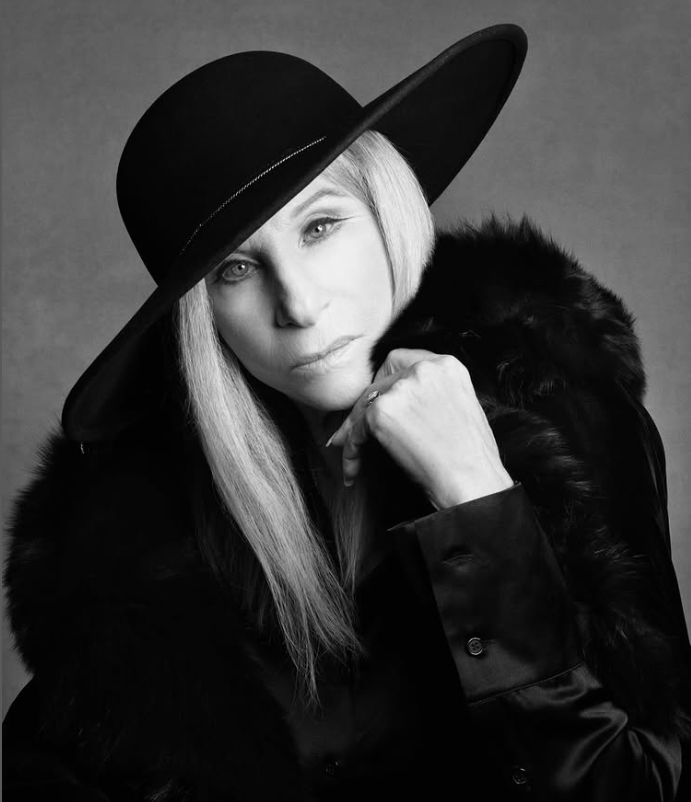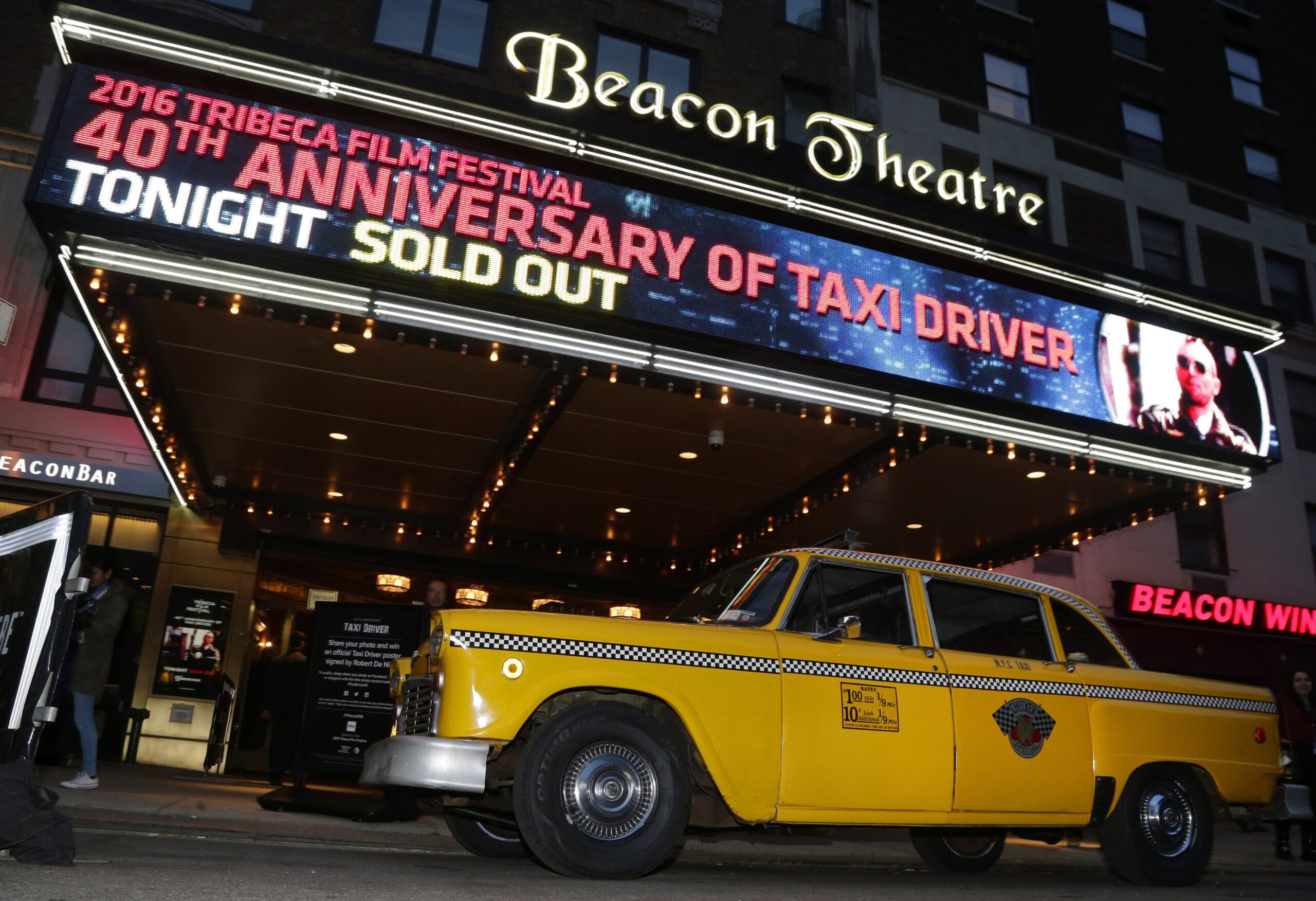
Tribeca Taxi Driver
Photo by John Angelillo (UPI/Shutterstock)
A failed comedian is a dangerous thing.
Todd Phillips’ Joker may put the infamous villain (and incel symbol) in a new sympathetic light (barely), but its controversial portrayal of a violent male misanthrope is nothing new. With Joker, Phillips pays homage to cinema’s most famous disaffected white men who turn to violence when the world refuses to appreciate them. Oddly, that tradition heavily features Robert De Niro.
The dark narcissism of a deadbeat stand-up comic was famously explored in Martin Scorsese’s 1983 The King of Comedy. After De Niro made Travis Bickle disturbingly sympathetic in 1976’s Taxi Driver, he brought that cultivated energy to his portrayal of Rupert Pupkin, a disaffected young man who lives with his mother and whose fantasies of comedy superstardom detach him from reality. He plots to kidnap the world’s most famous talk show host, Jerry Langford (played by Jerry Lewis), and hold him hostage until he invites Rupert on as a guest, launching what Rubert’s sure will be an illustrious career.
THE KING OF COMEDY – Trailer ( 1982 )youtu.be
SPOILERS
In Joker, De Niro plays Gotham’s beloved late-night host Murray Franklin, who publicly mocks Arthur Fleck (Joaquin Phoenix) for his pitiful standup routine on live TV. But then Murray invites him onto his show, where Arthur confesses to the murder spree that’s inspired an anti-rich movement of riots in the streets of Gotham City. Then he shoots the host in the head—live on air.
The character of Murray Franklin is a direct homage to Frank Miller’s 1986 four-part comic book miniseries, The Dark Knight Rises, wherein The Joker awakens from a catatonic state and reintroduces himself to the world by appearing on a popular late night show. Televised murder ensues. While it’s a lovely Easter Egg for Batman afficonados and a nice tie-in to past iterations of the Batman universe, it’s a disconcerting choice considering Warner Bros.’ own description of The Joker being“a man disregarded by society” in a film that’s “not only a gritty character study, but also a broader cautionary tale.”
Cautionary tale about what, exactly? That’s the question that’s spurred the FBI to issue warnings about possible shootings in theater screenings of the film (obviously in light of the Aurora theater shooting during The Dark Knight‘s premiere) and generally caused a ruckus about Todd Phillips’ film radicalizing everyone who’s fed up with society’s institutional failures. But the violence and madness and alienated madman aren’t fulminations of Joaquin Phoenix’s Joker; they lie in Robert De Niro’s Murray Franklin.
“Bob [De Niro] really loved the script,” director Todd Phillips told Empire Magazine. “I met with him and said, ‘I’d be lying to you if I said we weren’t influenced by a lot of your movies.’ I talked with him about Taxi Driver and about The King Of Comedy, which is one of my favorite movies of all time.” De Niro was drawn to Joker’s familiar themes and clearly saw his past characters and Franklin were part of the same conversation: “There’s a connection, obviously, with the whole thing,” De Niro told IndieWire. “But it’s not as a direct connection as the character I’m playing being Rupert many years later as a host.” Rather, as ScreenRant notes, “De Niro’s Joker character symbolizes all the glory and public admiration that both Arthur Fleck and Rupert Pupkin once dreamed of.”
The cautionary tale driving Joker is about disillusionment with a broken society that’s carelessly failed individuals, sure; but the heart of its caution lies in the subjectivity framing films like Taxi Driver, The King of Comedy, and Joker. Namely, our protagonists are unhinged. Unreliable narrators live out their fantasies of heinous acts of violence, realizing their delusions of grandeur. The endings are too perfectly aligned with the characters’ self-grandiosity to believe that they haven’t completely broken from reality, which is part of their appeal and enduring mystery: How much was real? Does it matter?
The point of films like Joker isn’t to prove that the system is broken and violence is the answer. Rather, individuals are broken by forces and circumstances out of their control, and their only means of regaining control and self-empowerment is to escape their loneliness—whether that’s through the beauty of destruction, the creativity of self-delusion, or, apparently, an elaborate sexual fantasy about their very attractive neighbor.
At the end of The King of Comedy, Rupert stands before a live studio audience that isn’t sure if they’re laughing with or at the unhinged young man. Rupert responds, “Tomorrow you’ll know I wasn’t kidding and you’ll all think I’m crazy. But I figure it this way: better to be king for a night, than a schmuck for a lifetime.”
JOKER – Final Trailer – Now Playing In Theatersyoutu.be
- 7 Iconic Movies You’ve Probably Never Seen (and Why You Never Will) – Popdust ›
- Joaquin Phoenix’s Family History Is Crazier than His Movies – Popdust ›
- Joaquin Phoenix Skips Press, Robert De Niro Talks ‘Joker … ›
- ‘Joker’ Film Review: Joaquin Phoenix Channels Classic Robert De … ›
- This Is How Robert De Niro Actually Feels About The Joker … ›
- JOKER – Final Trailer (2019) Joaquin Phoenix, Robert De Niro … ›
- Joker Director on Friction Between Joaquin Phoenix, Robert De Niro … ›
- New ‘Joker’ Footage Shows Robert De Niro in Full ‘King of Comedy … ›
- Joaquin Phoenix’s Joker reinvents Robert de Niro’s King of Comedy … ›
- Robert De Niro Addresses Connection Between ‘Joker’ & ‘King of … ›
- Joker: New Photo of Robert De Niro as Murray Franklin Released ›
- Murray Franklin Isn’t In DC Comics, But Robert De Niro’s ‘Joker’ Role … ›
